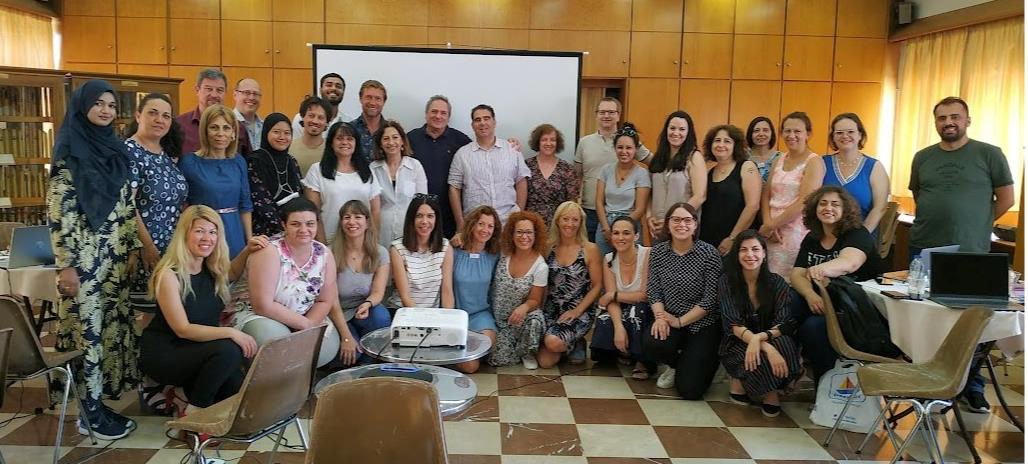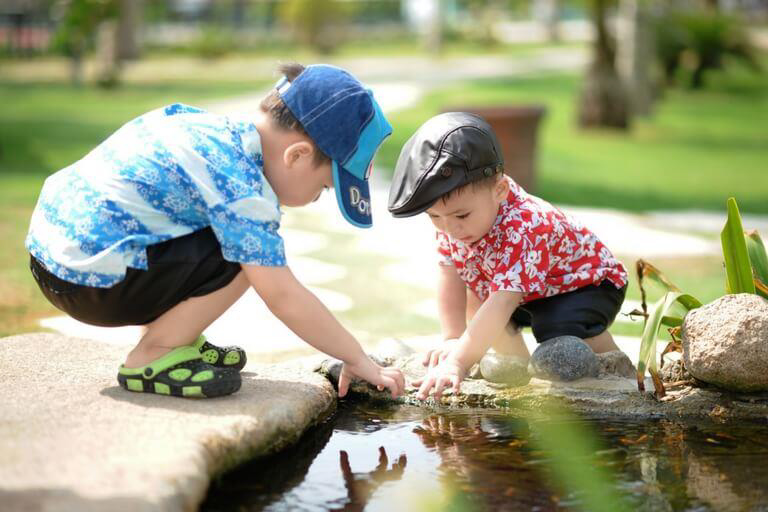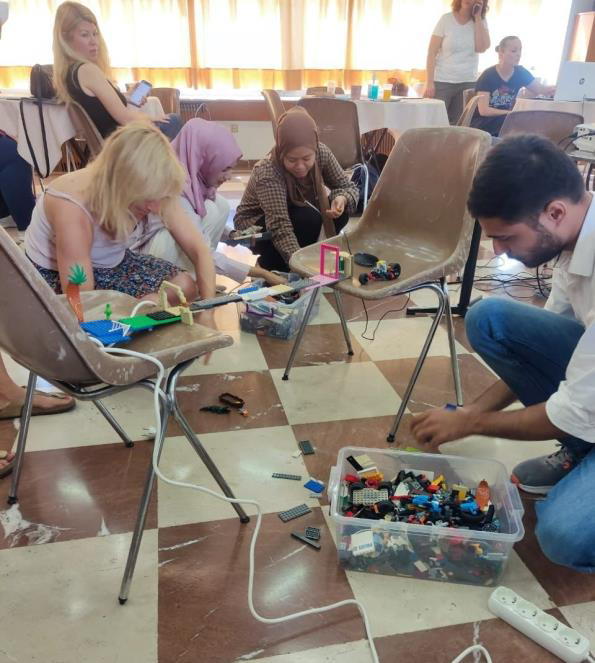
13
JulyNewsletter June 2022 Teachers’ training in Greece

Outdoor Education
Outdoor education can be described as experiential learning in the outdoors. The term "outdoor education" is widely used to refer to a range of organized activities, which take place in a variety of ways, in outdoor environments. According to Lloyd B. Sharp, a key principle is "that which ought and can best be taught inside the schoolrooms should there be taught, and that which can best be learned through experience dealing directly with native materials and life situations outside the school should there be learned" (Knapp 1996, p. 77).

High-quality outdoor learning experiences are proven to:
- Develop reflective and inquisitive thinking along with problem-solving approaches in ‘real’ situations
- Encourage holistic development of children
- Develop resilience and adaptability in occasionally adverse circumstances
- Allow children to become more able to identify hazards and risks
- Develop a love, appreciation and respect for nature and all that is living
- Develop an understanding of how we can look after our environment
- Develop self-awareness, confidence and self-esteem
- Develop collaborative-working and communication skills
- Provide positive health benefits –both physically and mentally –and assist gross and fine-motor development
- Develop a lifelong love of the outdoors

Game Based Learning
Game-based learning is a teaching method that uses the power of games to define and support learning outcomes. Game-based learning achieves this through educational games that have elements such as engagement, immediate rewards and healthy competition. To design a Game-based learning experience:
- Define the learning goals
- Find the game in the context
- Harness the great soft skill learning from games but connect it with context
- Play everywhere and anywhere. Provide feedback in class
- Reduce, reuse, recycle
- Not just who but what, where, when and why
- Do not ignore but nor be too limited by teacher training or readiness and academic standards
Design thinking in Education
Design thinking is a human-centered problem-solving approach which refers to problem-solving but is more of a mind-set and attitude. The significant role is the approach you take for challenges and solutions and your objectives to create innovative concepts. Design thinking is important now days for our students as we need to prepare them to face the challenges of their future. Through Design Thinking:
- They learn to have confidence with their abilities
- They can identify and develop creative solutions to the problems
- They understand the benefits of be optimistic, empathetic as also be active members of the society
Design Thinking process asks us to:
- Develop empathy and understand the needs of the people we are designing solutions for.
- Define problems and opportunities for designing solutions.
- Generate creative ideas.
- Develop prototypes and test solutions and seek feedback.

